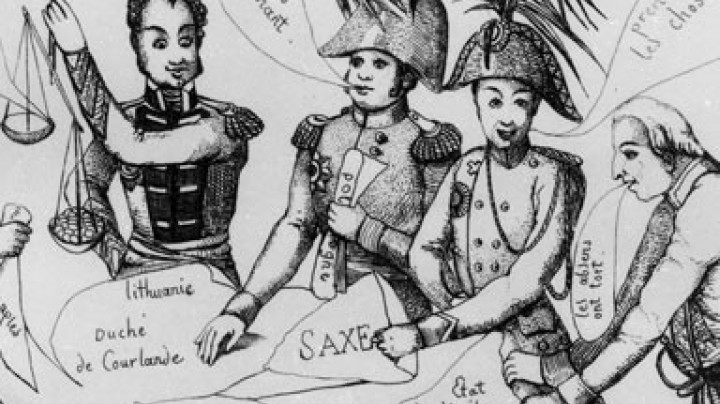‘Viennese tolerated Jews’ as future business magnates
Because of the many wars money was in short supply. In the search for new investors the capital of the Jews was discovered.
Poem by the Prague Jew, Abraham TrebitschThe Jews one does not dare to curse / To tease, abuse and vilify. / Painful torments come to an end, / And we shall not have to pay poll tax any more. / In Austria and in Vienna, the imperial capital, / The sons of Israel are now allowed to trade in the markets. / The dividing barriers come crashing down / Because of Joseph the Emperor’s good intentions.
Whilst the majority of the Jewish population lived on the fringes of society and were confined to ghettos, a small group of Jewish financiers were already contributing to the state finances. These ‘Court Jews’ enjoyed special rights and privileges, including exemption from certain taxes and tariffs. The Oppenheimer and Wertheimer families were among this privileged group. The ‘tolerated’ Jews made an important contribution to Court finance and were obliged to pay ‘tolerance money’. Now Court Jews were also expected to invest in industrial development. The Judenordnung (statute regulating Jewish status) of 1764 laid down that Jews seeking ‘tolerated’ status would have to invest their wealth in manufactories in order to obtain permission to live in the imperial capital.
Twenty years later, in the Toleranzpatent on Viennese Jews, they were also encouraged to invest their money in the economy. In spite of, or perhaps particularly because of the prohibition on forming a Jewish community and using the Hebrew language, the Jewish people integrated themselves into the social life of Vienna. The rise of important banks and trading houses such as Arnstein and Eskeles took place during Joseph’s reign. Since the state was dependent on Jewish financial capital, these Jews were able to exert influence on the economic and cultural life of Vienna. Economic success was frequently rewarded by ennoblement. But only a few hundred Jews were under the protection of this tolerance; for all others migration to Vienna was to all intents and purposes prohibited.















